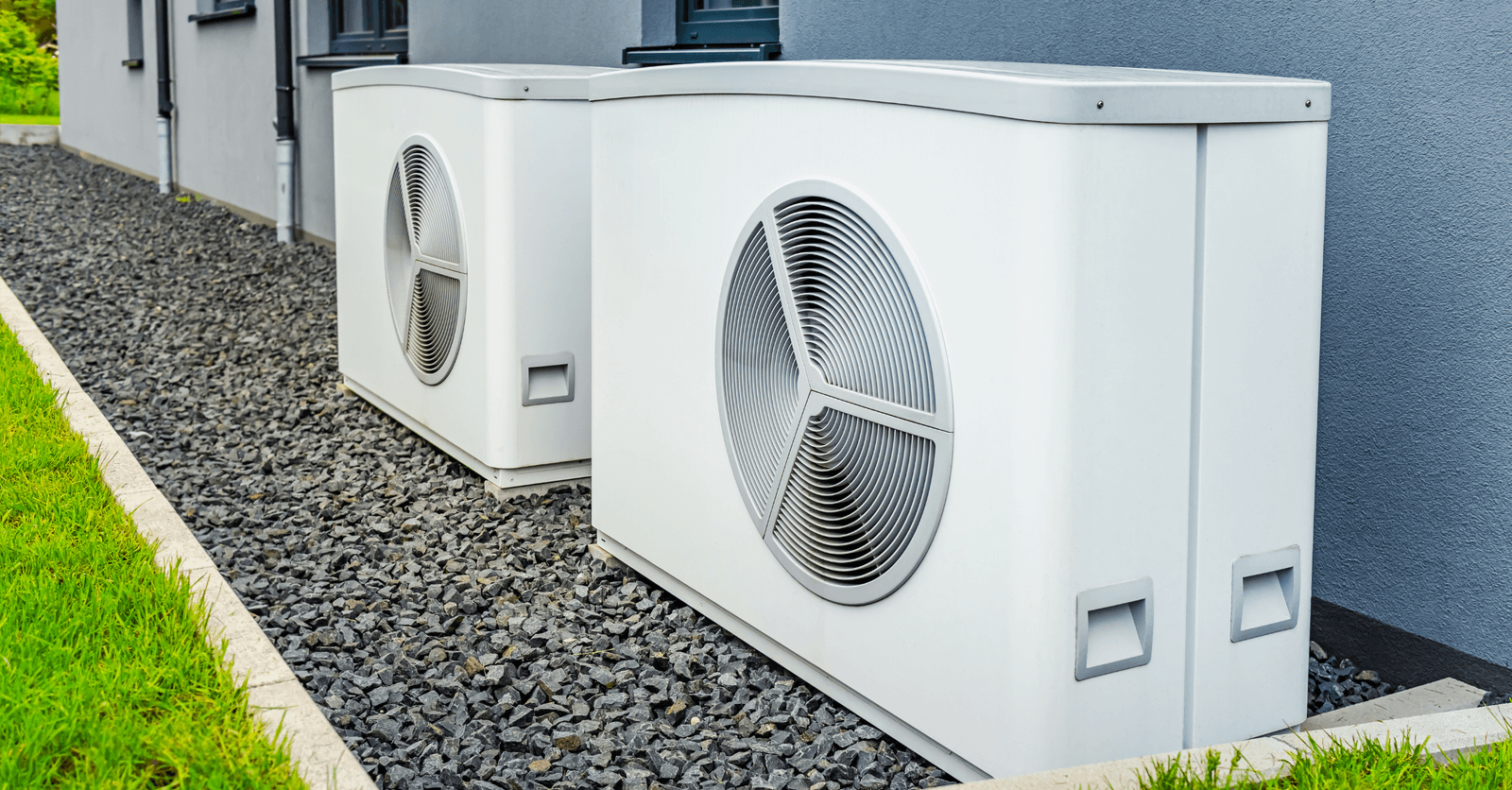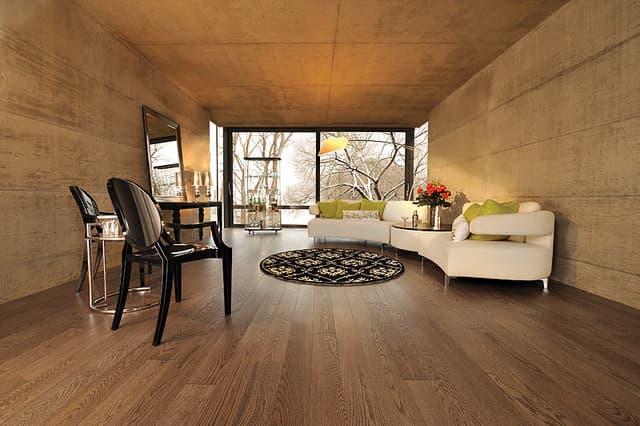What Thermostat Model Is Best Suited to Your Heat Pump?
By Editorial Team
Updated on March 31, 2025

Getting a thermostat for your heat pump can be a complex purchase. From programmable, smart, or electronic, every one of these has its own sets of advantages. Yet, nowadays, smart thermostats are naturally those with the most functionalities. This article is a deep dive into this subject matter, with an overview of must-have advice on using your thermostat during wintertime to maximize your heat pump’s efficiency.
How to Select the Best Heat Pump Electronic Thermostat

If you happen to be looking for the best heat pump thermostat, you absolutely must steer your decision-making toward smart thermostats. The best of the lot are cutting-edge devices capable of remarkable results. For example, the Mysa Smart Thermostat allows you to set your air conditioning remotely.
Smart thermostats can also calculate the humidity level and its effect on the comfort of the occupants and automatically alter the temperature. Just imagine you’re walking out of your shower, and instead of feeling cold, you feel neither too cold nor too warm. In order words, the thermostat has considered the humidity level in the room and adjusted the ambient temperature accordingly.
If the temperature alteration doesn’t appeal to you, you can always use the smart thermostat's voice command setting using Alexa or Siri.
Be careful though, when picking out your smart thermostat, make sure it features the following:
The device is compatible with your heating system (gas, electric, oil, etc.)
Available with Alexa, Siri, or Google Assistant
Retailed with temperature sensors positioned in each room, connected to the smart thermostat’s Wi-Fi
Equipped with a geolocation application
What makes the last of the listed factors a possibility? Courtesy of an application downloaded on your phone, your thermostat recognizes whether your mobile device is inside the home or outside, so whether you’re at home or not.
When you’re out, your thermostat will set the temperature differently in your home, and therefore help you save significantly, energy-wise.
The Benefits of a Smart Thermostat for a Heat Pump
Smart thermostats allow for the following:
Energy savings
Improved indoor comfort
Contribute to climate change
Set the temperature in every room or the home as a whole
Switch from an automated to manual mode
Pair the heat pump to the home’s Wi-Fi network
Manage the thermostat directly on a smart mobile device
Automatically change the temperature inside based on the temperature outside
Get email notifications if temperature thresholds are overridden
Turn the heat pump on or off based on operating hours
How to Install a Programmable Thermostat

To install a thermostat, you have to hire a certified electrician.
Step 1: Power down the system
To work safely, you absolutely must power down the system via your electric panel. Otherwise, you risk getting electrocuted.
Step 2: Install the thermostat in series
A programmable thermostat must always be installed in series (as opposed to parallel) with the heating unit. Otherwise, the latter will be damaged if it’s directly connected to the power source.
Step 3: Connect wires to thermostat
When removing the old thermostat, if there is one to remove, you have to figure out if it’s connected to two electrical wires. To connect your new thermostat to both wires, pop open the cover to access the connectors.
Be careful, the connectors must be well-tightened. If the connection isn’t done properly, the risks of sparking a fire are legitimate. The same goes if the wrong connectors are used.
Indeed, if the wires to which the thermostat must be connected are made of aluminum, CO/ALR-approved connectors are mandatory.
Step 4: Connect and power up thermostat
Once the wires are connected and the cover is popped back on, you can now power up your thermostat to get it going.
Refer back to the manufacturer’s installation manual provided with the programmable thermostat. It should indicate which buttons to push, and for how long, to connect the device to your household network.
Typically, you will have an additional device known as the “Gateway,” which will link your Internet router to the programmable thermostat.
How to Set Your Heat Pump’s Thermostat for Winter Use

For every room, there’s a set temperature. In other words, a recommended temperature to ensure the room isn’t too warm or too cold. This temperature varies from one room to another.
Living areas: 19°C to 21°C
Bedrooms: 16°C to 17°C
Bathroom: 22°C
During wintertime, it’s advised to set a wall-mounted heat pump’s thermostat 2°C to 3°C lower than the recommended set temperature.
When it comes to a central heat pump, the thermostat must make it possible for the heat pump and the space heater to function simultaneously. However, note that such a simultaneous function isn’t possible with a warm air heating system that functions with fuel as an energy source.
When to turn off a heat pump in the winter?
It all depends on the type of heat pump you have. They can be differentiated as such:
those that work at -15°C (5°F); and
those that don’t work at -15°C (5°F).
With the first, which functions in temperatures of -15°C (5°F), you can let it run all through winter. However, remember to set the temperature of your baseboard heaters 1°C (31°F) below the temperature shown on the heat pump’s thermostat.
Therefore, when the temperature outside is too cold, and your heat pump just can’t keep up and produce enough heat, your primary heating system will take over.
As for the second type, which doesn’t function at temperatures below -15°C (5°F), shut it off as soon as the temperature outside dips below -10°C (14°F). To do so, push the device’s power button. If the heat pump doesn’t have such a mechanism, switch off the appropriate circuit breaker on your electric panel.
Once the temperature outside warms to 0°C (32°F) again, for an extended period, you can restart your heat pump.
Get 3 quotes for your heating or air conditioning system project
RenoQuotes.com can help you get quotes for your air forced-air heating system project. When you submit your project, we’ll then put you in contact with top-rated contractors. Fill in the form on the homepage (it only takes a few minutes) and get estimates from trusted professionals.
Dial 1-844 828-1588 to speak with one of our customer service representatives.
Looking for something else?
Related articles
The latest industry news, interviews, technologies, and resources.

Editorial Team
•23 Jul 2025
When you live in a region where the winters are long and harsh like they are in Quebec, it’s paramount to choose a heating system that’s not only reliable and efficient but also cost-effective.

Editorial Team
•02 Dec 2024
As the winter season approaches, ensuring warmth in your home is very important. Dozens of studies indicate that windows can represent a significant fraction of the total energy consumption of a building. Therefore they are an important subject of efforts of window companies Halifax to reduce energy losses. In this article, we are going to look at techniques for insulating the windows, how to regulate them, and how to cover the gaps to secure your house for the winter season.

Léa Plourde-Archer
•08 Nov 2023
Deciding to replace your current floor is a process that should not be taken lightly. Not only is it a major financial investment, but it also takes time. Which material is best? Which colour?
Léa Plourde-Archer
•06 Feb 2025
Your kitchen renovation is likely to transform your home and enhance your quality of life. But where should you begin? This complete guide will walk you through everything, step by step, from design to finish. You’ll find all the necessary information to successfully carry out your project without overlooking any crucial steps.

Cynthia Pigeon
•08 Nov 2023
Are you shopping around for a new roof? Do you also want to change the siding on your house, but aren't sure which roof colour is best? Well, you've come to the right place! Below, we've outlined all the factors to consider when choosing a roof colour for your Quebec home.